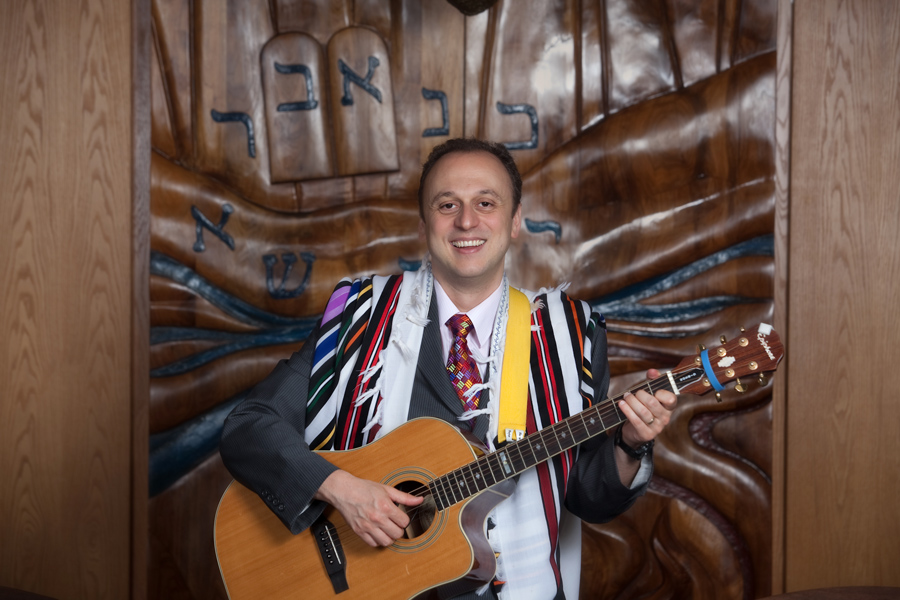
In our tradition, the Rosh Hashanah and Yom Kippur are known as the most awe-inspiring and powerful Holy Days. In our modern reality, the High Holy Days continue to serve as a draw for the Jews who rarely set foot in the synagogue during the year, but who nonetheless make big efforts to be a part of a community on the Days of Awe. Of course, if you have not been coming to the synagogue regularly, you may find the experience alienating (and great many Jews do!), since you do not know the prayers and may not be quite as comfortable with Hebrew (or don’t know how to read), the services may seem far too long and hard to cope with. If you go to a bookstore or search online, you will quickly discover dozens of books with titles such as ‘how to survive the high holidays’, ‘Rosh Hashanah and Yom Kippur survival kit’ and so on.
Somehow, this most profound experience of the Jewish year is also one of the most difficult ones for the majority of modern Jews – and yet the synagogues continue to open up walls to social halls and rent additional chairs to accommodate all those who come just for those few days… For so many Jews, coming back to the synagogue to hear Kol Nidrei and Avinu Malkeinu and the sound of the Shofar is still one of the most important moments of the year. I know for certain that those who attend the services regularly feel much more at home in the synagogue during the High Holy Days, but I also know how much comfort the High Holy Day services give to everyone who comes back year after year…
The Days of Awe, Yamim Noraim are technically the ten days that connect Rosh Hashanah and Yom Kippur. It is the time for reflection, for introspection. The time to conduct what the rabbis call heshbon hanefesh, the accounting of the soul. It is a time to seek forgiveness for the wrongs we have done – first from people, our loved ones, our families and friends, as well as people we barely know but may have hurt, and then from God. But as much as we all accept the need to come together and to pray and to say the words of supplication (slach lanu, mechal lanu, kaper lanu – forgive us, pardon us, grant us atonement) we often forget that this process does not begin on Rosh Hashanah, the New Year – but it begins in the month of Elul that precedes it!
The Selichot prayers, the ‘prayers of forgiveness’ are recited in the month of Elul, before the New Year even begins. In Sephardi tradition the selichot are recited throughout the month of Elul, whereas the Ashkenazim begin the selichot prayers at the end of Shabbat preceding Rosh Hashanah. Traditionally, the penitential prayers are recited at midnight, physically reminding us that this is the time to look at our lives and ourselves in a different light…
For many years now the Greater New Haven area Reform synagogues have been coming together for the Selichot services. It gives us a once-a-year opportunity to share our worship with each other and to be together as part of a bigger Jewish community and family – a very special feeling indeed. This year, as we begin to celebrate Temple Emanuel’s 50th anniversary, we are also honored to host the Selichot services at TE! On Saturday, September 24th at 7.30 pm members of Reform Congregations in Hamden, Cheshire, Southbury, Madison and Chester will come and join TE members for a very special service that will help us set the mood for the upcoming Holy Days.
Professor Paul Bloom from Yale will talk about ‘Just Babies’ and share with us the results of his research into innate morality, the fascinating subject that seems to confirm some of the key beliefs in Judaism!
If you would like to sing in the combined choir, please contact Laurel Shader asap! We also need help with parking and food, please let Leona know if you are available to help, but above all, I hope we use this opportunity to come together and experience the incredible spirit of the selichot service, especially if you have not done so in the years past!
Last but not least, I hope you will take a moment to follow the link in the shofar blast (or the shofar) and tell the High Holy Day committee what mitzvoth (honors) you would like to have in the services, as well as how and when you are able to help – we really want to make sure that every member of our congregation has a chance to participate in the most meaningful way!
Wishing you all Shanah Tovah U’metukah, a sweet and happy New Year 5772 ahead!
